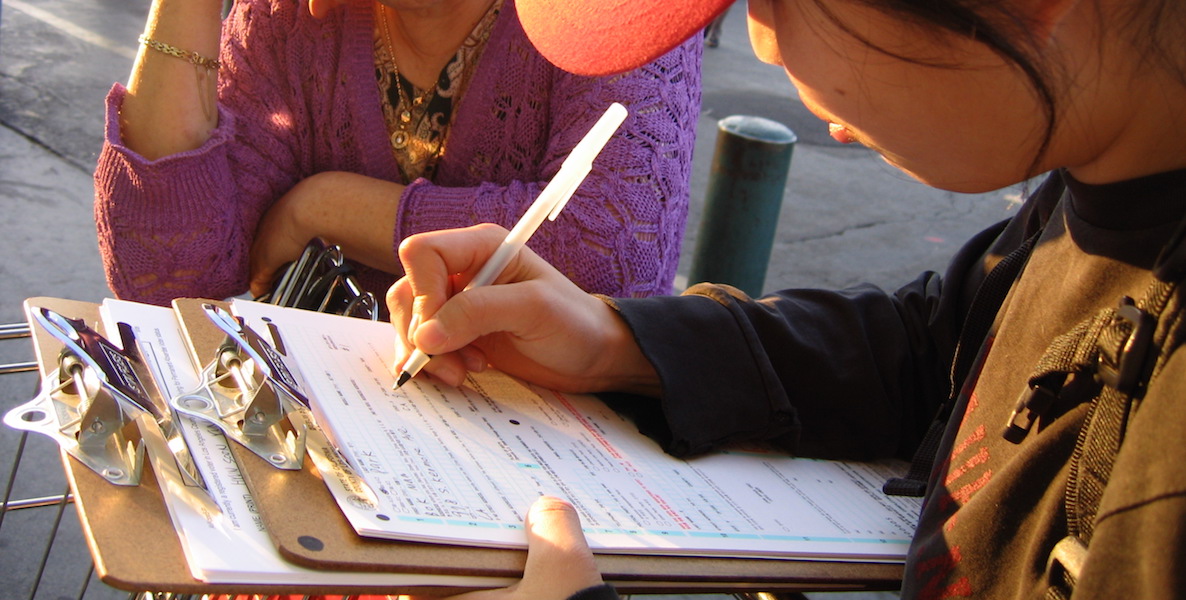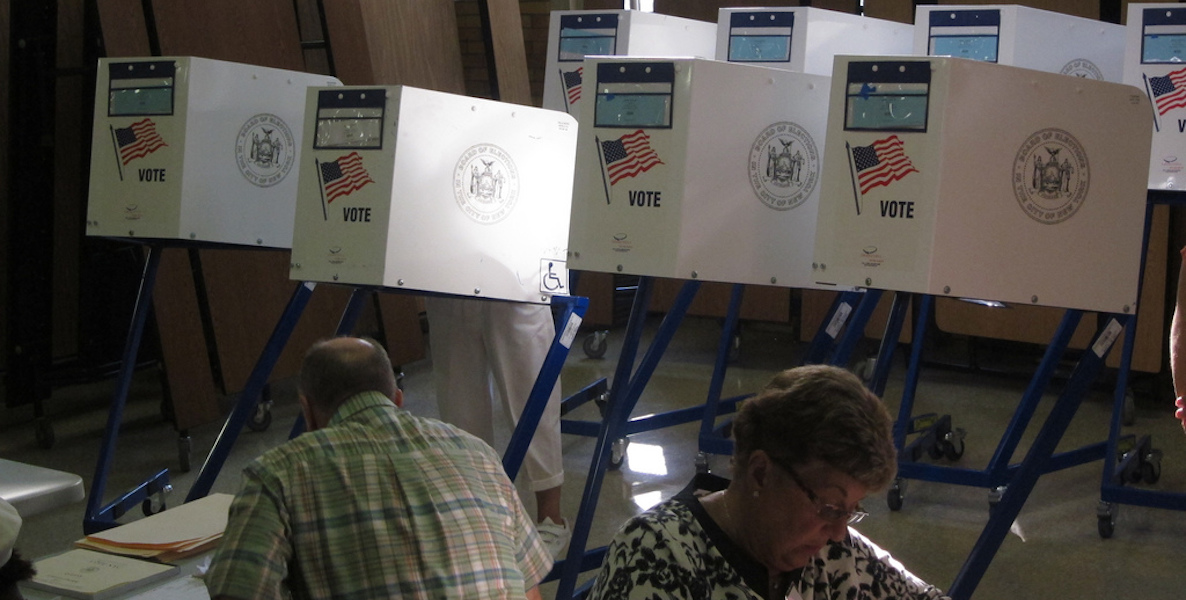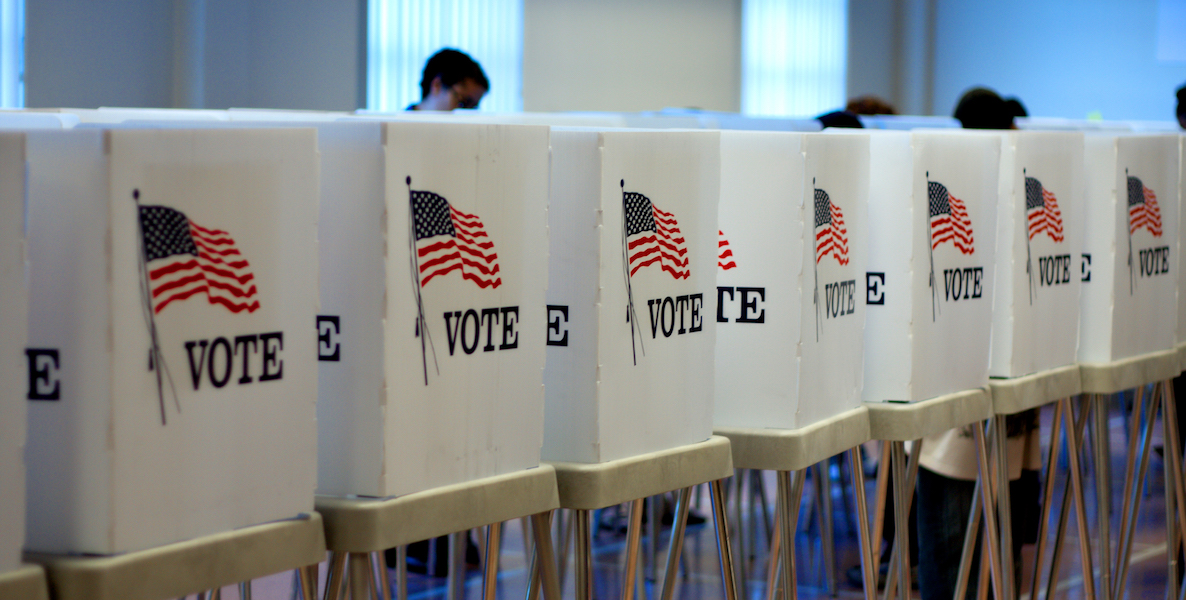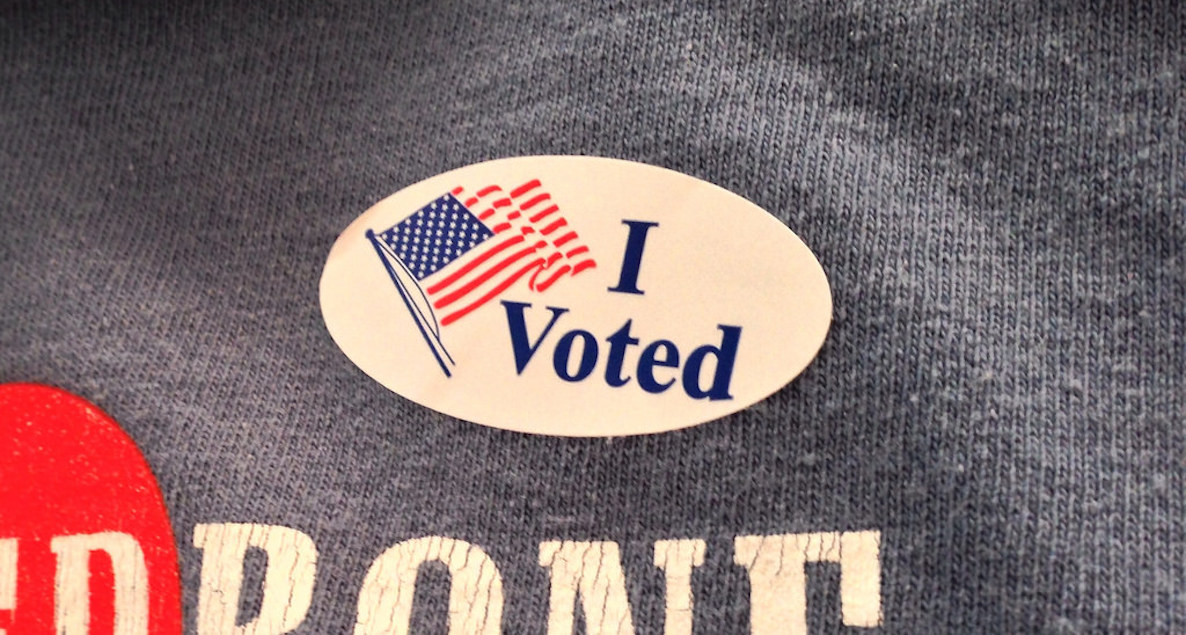From the gutting of the Voting Rights Act to draconian ID requirements (they’re not just for groceries anymore) to good old civic apathy, times are tough for the franchise in America. But one Midwestern city is taking a novel approach in defense of that fundamental exercise of democracy. Under a new ordinance in St. Paul, Minnesota, landlords must now help their tenants register to vote.
The rule, which St. Paul City Council President Amy Brendmoen characterized as “something that is a relatively modest request,” requires that landlords offer new tenants instructions on how to register to vote upon lease signing or occupancy. Failure to comply can result in a petty misdemeanor charge.
If handing out voter registration information with leases seems about as incongruous as handing out hotdish recipes with those leases, consider that Minnesota’s voting culture is nearly as proud and impressive as its hotdish culture. With nearly 75 percent of eligible Minnesotans voting in the last five election cycles, the North Star State boasts the highest turnout in the country. (By contrast, Pennsylvania ranks a lackluster 34th.)
To be sure, an ordinance like the one passed in St. Paul won’t boost our city’s voter turnout to Minnesotan levels or overhaul landlord/tenant law on its own, but for the tens of thousands of low-income Philadelphians facing eviction and housing precarity, getting a leg up to the polls means a better chance to reshuffle a deck that has been stacked heavily against them for far too long.
Minnesota’s enthusiasm for showing up to the polls may have something to do with its energetic and interactive caucus system, and with its longstanding policy of same-day voter registration, a practice which some speculate was responsible for Jesse Ventura’s shocking gubernatorial victory in 1998, back when things could still be shocking.
![]()
Brendmoen said she sponsored the ordinance in response to the growing number of renters in St. Paul, hoping to usher new residents onto the voting rolls and help movers prioritize updating their polling locations. In Philadelphia, 47 percent of residents are renters, and thousands switch polling places between elections; the extra step of re-registering often gets overlooked in the move.
Voter turnout in Philadelphia, especially for primaries and off-year elections, remains embarrassingly low. As Charles Ellison has written in The Citizen, there’s plenty of blame to be shared not just by voters, but among “public officials, city leaders, academic institutions and even the media.” Citing a University of California San Diego study, Ellison also notes that a city’s voting rate isn’t just a point of civic pride or shame, but that turnout directly influences policy decisions.
Minnesota’s enthusiasm for showing up to the polls may have something to do with its energetic and interactive caucus system, and with its longstanding policy of same-day voter registration, a practice which some speculate was responsible for Jesse Ventura’s shocking gubernatorial victory in 1998, back when things could still be shocking.
A quarter of Philadelphia’s population lives below the federal poverty line, while half again as many struggle at or below 50 percent of the poverty rate. And it’s a fact that a substantial majority of poor people don’t vote. Whether because of logistical obstacles, legal disenfranchisement, disgust at the choices on offer or some combination thereof, the cohort of Americans most at the mercy of the vagaries of our capitalist political system are among those least likely to vote to change it. Registering to vote is not enough—but including a voter registration form along with a new lease is one simple step in the right direction.
![]()
Requiring landlords to educate their tenants about voting can have other meaningful outcomes as well. In Philadelphia, some 53 percent of renters are cost-burdened, meaning they spend more than 30 percent of their monthly income on rent. For low-income renters in the poorest big city in America, the share of income going toward rent jumps to nearly 60 percent. The implications are stark and brutal; the more these vulnerable Philadelphians have to spend to keep a roof over their heads, the less they have available for other needs like utilities, food, clothes, transportation or the ability to withstand even the slightest unexpected financial emergency. It’s no mystery that nearly 1 in 14 Philadelphia renters face eviction proceedings in any given year.
The Mayor’s Task Force on Eviction Prevention and Response released its draft report and recommendations this spring, calling for a variety of prevention and intervention measures for tenants at risk of eviction. It would be simple enough to add this requirement to a list of new rules Council may consider for landlords in the fall.
This was the impetus for the establishment last year of a Mayor’s Task Force on Eviction Prevention and Response. The Task Force released its draft report and recommendations this spring, calling for a variety of prevention and intervention measures for tenants at risk of eviction. Among the recommendations were proposals for increased inspections of problematic landlords, a small landlord repair loan program, direct city outreach to tenants served with eviction notices, expungement of eviction records, and an endorsement of City Council’s proposed Good Cause eviction bill, which would constrain a landlord’s ability to evict a lease-compliant tenant. It would be simple enough to add this requirement to a list of new rules Council may consider for landlords in the fall.
The rules that establish the power dynamic between landlords and tenants in Philadelphia are drafted by elected legislators, enacted by an elected executed branch, interpreted by an elected judiciary and enforced by an elected sheriff, all of whose priorities are directly influenced by their voting constituencies. To be sure, an ordinance like the one passed in St. Paul won’t boost our city’s voter turnout to Minnesotan levels or overhaul landlord/tenant law on its own, but for the tens of thousands of low-income Philadelphians facing eviction and housing precarity, getting a leg up to the polls means a better chance to reshuffle a deck that has been stacked heavily against them for far too long.
Photo via Flickr





